From CIA To comic books: The secret origin of Tom King
From an intern at DC and Marvel, to a CIA operative in Iraq, back to a writer at DC
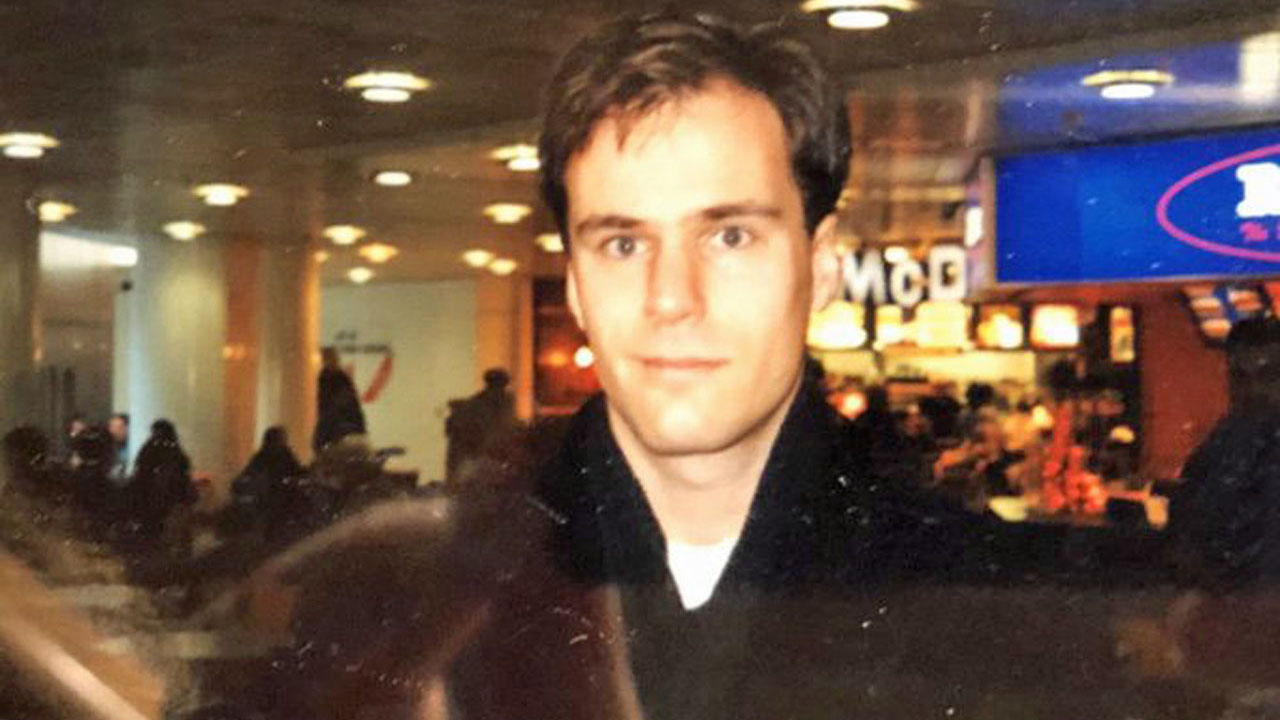
When Tom King signed on as co-writer of the "New 52" series Grayson, DC promoted his background as a CIA operative that would inspire that run.
That was definitely a new way to promote a comic book.
Although there's been plenty of comic book writers who've previously worked in surprisingly varying industries, Tom King's years as an operative in the CIA stands apart.
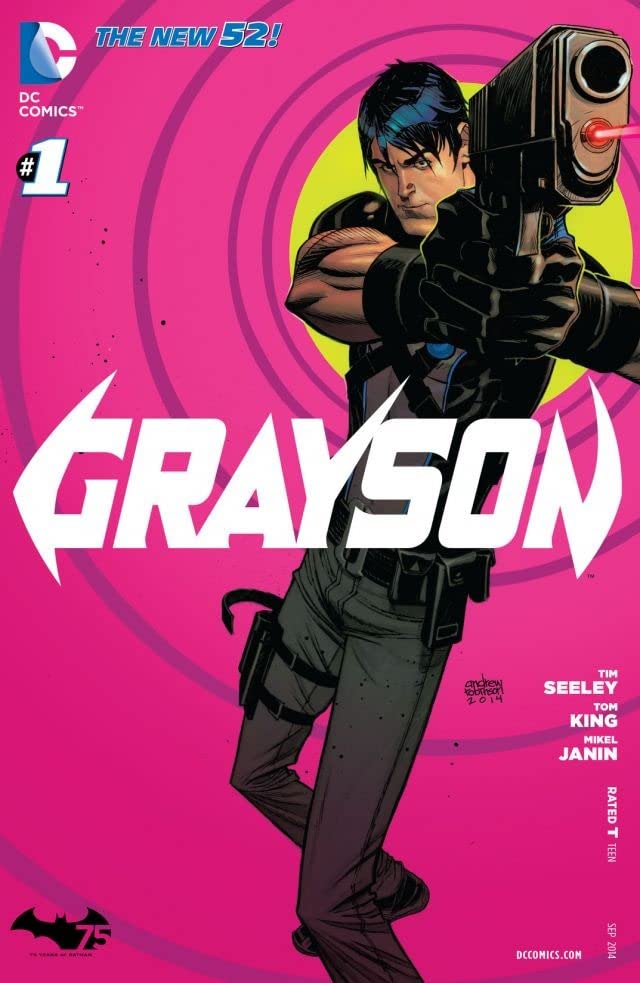
And yet - potential James Bond image aside - it turns out that King enthusiastically describes himself as a nerd, complete with decades of comic book knowledge and experience as a college intern at both Marvel and DC. (Yes, he interned at both - another aspect of King that stands apart from most.)
In the last few years, King has been impressing critics and readers with his work on series like Batman, Sheriff of Babylon, and The Vision, for which he won an Eisner Award.
Despite all his accomplishments, the new Mister Miracle writer is talkative and friendly in person, eager to discuss anything about comic books — an open demeanor that Keith Giffen told us helped change his mind about DC's younger writers.
"To have this guy, you know, who's new, who's got such a great grasp of where his position is in the comic book industry, talking about he's taking over Batman and just storytelling approaches and new villains and how timely it should be…" Giffen said. "I'll admit that there was a time when I looked at the new guys and thought they were a bunch of prima donnas. But they're not. I was wrong."
Comic deals, prizes and latest news
Get the best comic news, insights, opinions, analysis and more!
So how did a 'nerd' and comic book intern end up in the CIA? And how did that lead to him writing comic books years later? In this first installment of our discussion with the writer, Newsarama talked to King to find out more about the person behind the page.
Newsarama: Tom, how did you become a fan of comic books? Did you read when you were young?
Tom King: I was a super nerd. I'm very typical of some sort of cliché. I was no good at throwing things at other things, or putting things in hoops, or running using my legs. I had trouble making friends.
I always felt like the outsider kind of kid.
In those days, for some reason, superheroes and comic books really appealed to that kind of personality, or at least to me.
I started when I was around seven. I had two parents who smoked, and when they picked up a pack of cigarettes, they'd buy me a comic.
Nrama: Nice.
King: I know. I really feel like the rise of health care has really hurt the comic book industry.
And my first comic book was Avengers #300, and it changed my life. I was seven or eight or nine, and I got addicted.
And I haven't stopped reading since then.
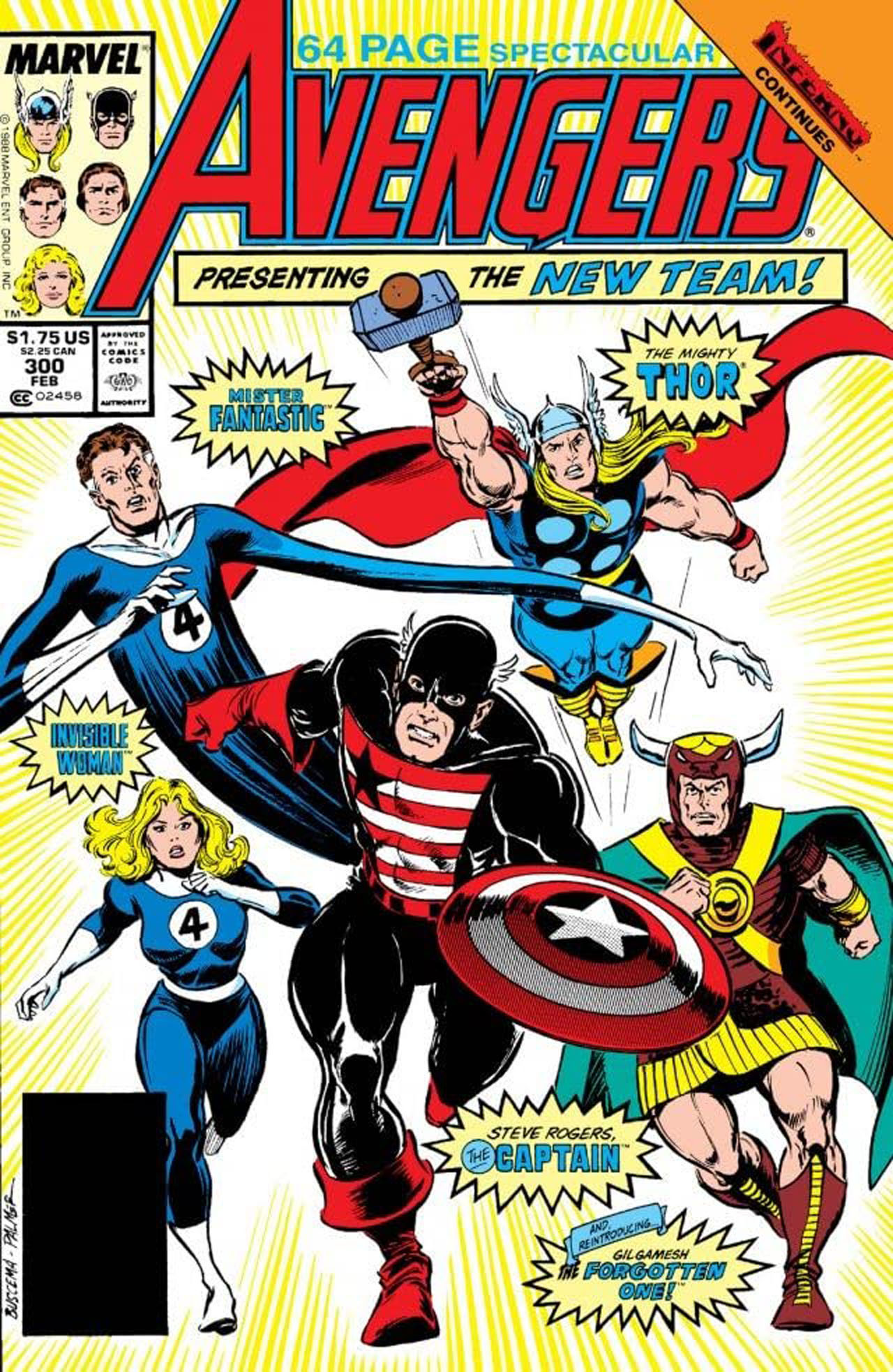
Nrama: Do you still have Avengers #300?
King: Yes! I have the actual physical comic up in my office, and I have a page from it that I bought - I was like, I had to buy it and I put it above my desk.
Nrama: Did you want to be a writer from a young age?
King: Oh yeah. I don't know what it is about comic books - you kind of want to participate in those somehow.
I grew up in Los Angeles, and I remember thinking, like, Archie Comics was in Los Angeles back then, and I called them and asked, "Hey, do you want me to just sweep your floors?" They kind of laughed at me. I was like 12.
I always wanted to be part of it.
But I grew up - my mother was a studio executive. I was raised by my mother and my grandmother. And my mother was a studio executive, on the business side of making money from that sort of thing. And she was always of the opinion that the entertainment industry and being a writer was basically like playing the lottery. She just didn't think it was a dependable career.
I wanted to be a writer, and my mother was like, "No, why don't you become a lawyer?" That sort of thing.
I remember at one point I really wanted to be a writer, and she told me, "If you get good grades and study hard and go to the right school, then you can become a writer." And I'm 100 percent sure she was lying, but it actually worked.
So that's what I did. I focused on school and getting good grades and that sort of thing.
Nrama: Where did you end up going to college?
King: I went to Columbia.
Nrama: Ah, so you did have good grades.
King: I was always really good at school. Luckily.
Nrama: You really are a nerd, through and through.
King: I am a super nerd, yeah.
Nrama: What kind of writing did you think you would do? Movies, because of your mom's career? Or were you thinking comic books?
King: I always wanted to write comics. I always felt like comic books gave me a step up.
I grew up in a weird environment. My mother's head of the home video division, basically. She played a big role in the invention of DVD - she won an Emmy for it. Or rather, she's part of a group that won an Emmy for it.
So my whole house was full of free movies, constantly. I mean, literally stacked against the wall. We used them to balance tables and stuff. My house was full of movies every which way.
In my room though, I was surrounded by comic books.
My mom had a strict policy after I started wanting these comic books - she wouldn't buy me a comic book but would make me pay for them. And I would do chores and go help my grandmother build stuff - anything to earn money to get comics.
When I was 12, I used to ride my scooter two miles to a comics shop, which I can't imagine letting my kids do by themselves through the city.
Nrama: I know, isn't it crazy to think about the things we did as kids?
King: Yeah, I was like 10 or 11, and a bunch of buddies and I would either ride the public bus or take our bikes and scooters, just riding the streets to go buy a Superman comic.
Nrama: So comic books was always what you wanted to do?
King: Yeah, so I was surrounded by stories growing up. And when you start, like, doing creative writing in ninth grade or something - when you actually do it seriously- I had a step up on everybody because I had read these Frank Miller and Alan Moore works. And I saw the tricks they were using - tricks like repetition and themes and…
Really, because of those two guys, I could see how stories are made. Because in comic books, so many of the stories are just the same types of stories, but with variations that make them interesting. It's like watching a great symphony being played by different people.
So you start to learn what makes one symphony better than another - how to conduct just by looking at it.
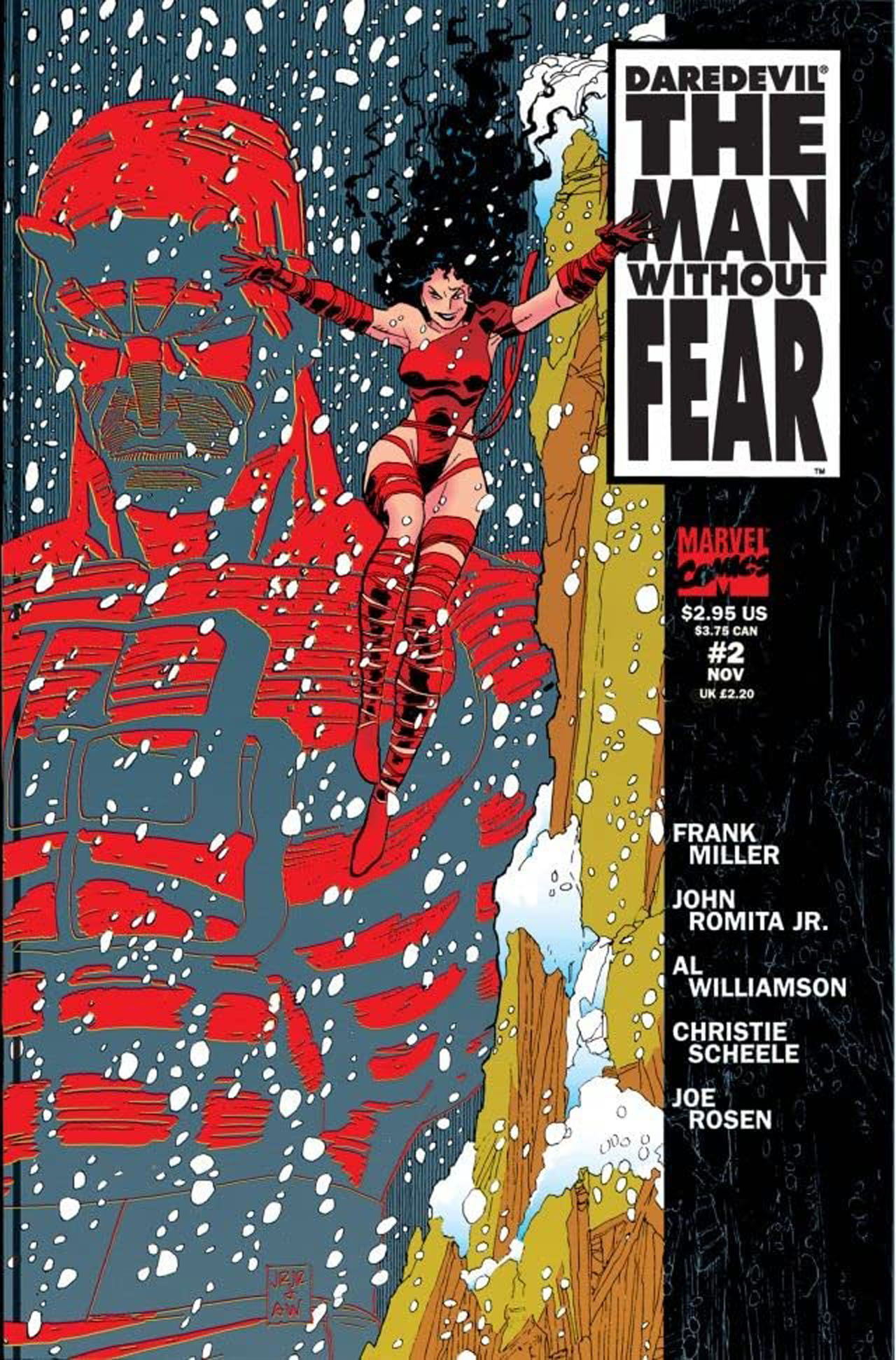
Nrama: So why Columbia University?
King: I was just telling Frank Miller - I'm sorry, I don't mean to drop names. But we did one of those, like, East Coast sweeps where you go to a bunch of schools and at the end, you figure out which one you want to go to. You're 17. You have no idea. You just try to think which one had the prettiest girls or something. I know kids might have a clue today, but I didn't.
I remember Daredevil: Man Without Fear had come out and Matt Murdock went to Columbia. I was like, if Daredevil went to Columbia, it must be good enough for me.
Nrama: And he does get the girls.
King: And he does get the girls! Yeah!
But I also knew that DC and Marvel were in New York, so I wanted to be near them in hopes of one day getting work there. So I did want to go to a New York school.
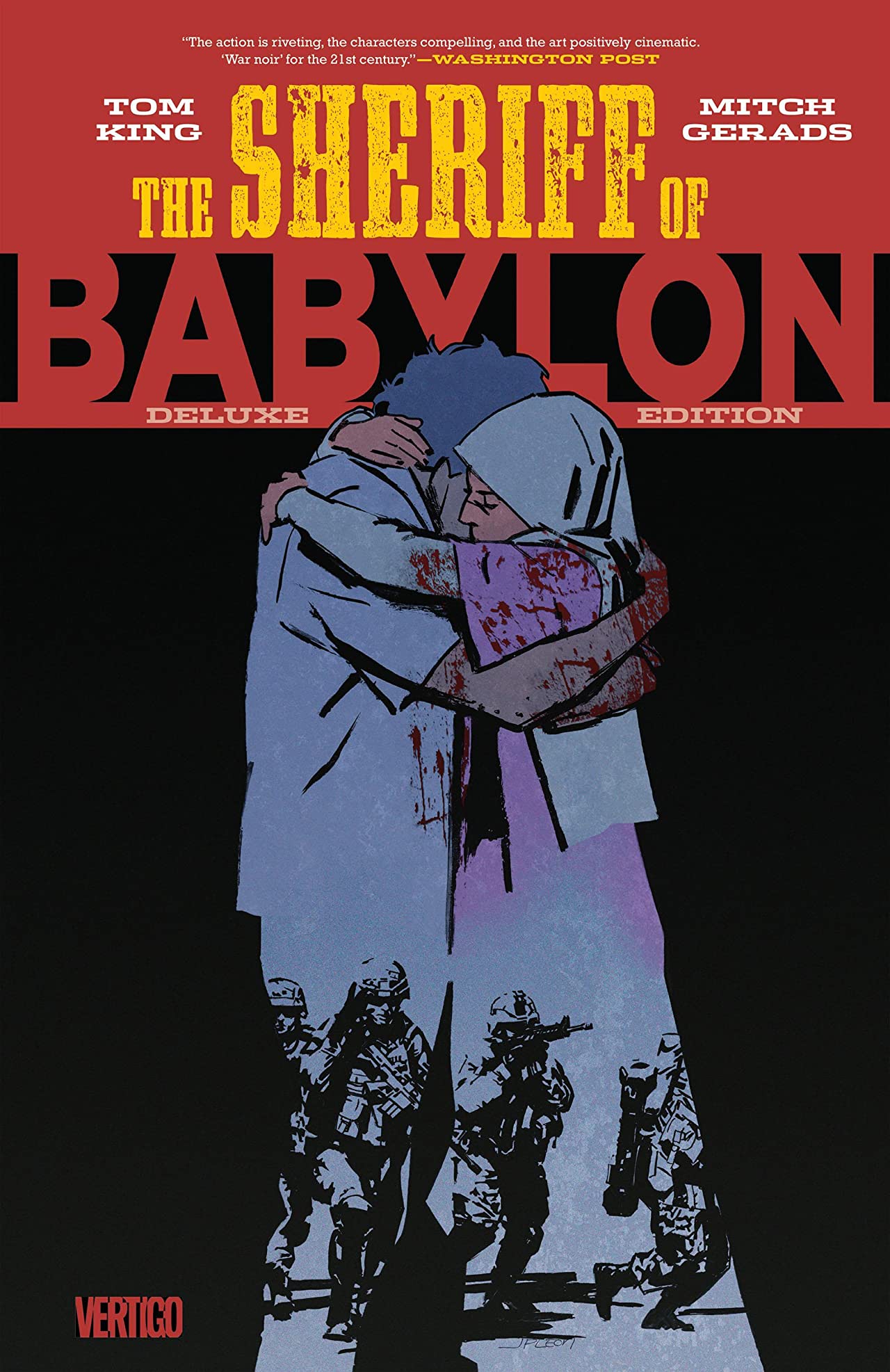
Nrama: You were an intern, right?
King: I interned at DC first and Vertigo, when I was 19 or 20, working under Cliff Chiang. He was an editor there at that time. And Joan Hilty, and Axel Alonso, now head of Marvel, I was under him, and Karen Berger. And I was a copy boy. I basically…I photocopied a lot of scripts and stuff.
That's where I first learned what comics were and what they could do. The comics they had at that time were Preacher and Transmetropolitan. I was there when a 100 Bullets page came in - they were talking about it.
I was in the room when Axel talked to Garth Ennis about the end of Preacher and how to make it different from the end of Swamp Thing. So I was a little bit near to comics then.
Nrama: Did that make you want to do comic books even more? Or less?
King: More! Absolutely!

And then the next year, I interned at Marvel Comics. I was the assistant to Chris Claremont. At the time, I don't know what his title was - creative editor or something like that - and he was basically in charge of reviewing every single comic script that came into the office and sort of commenting on them or adding his Claremont-ness to them.
Basically, my job, if anybody has ever talked to Chris, he's got a lot of opinions on things. And my job was to sit there and sort of listen to him as he examined each script and broke it down and said what works and what doesn't work. I was sort of a sounding board for him to talk to.
Nrama: What an education.
King: I know! It was incredible. It was really a transition period in comics, because you still had people like Roger Stern and John Byrne - like, old school people who were writing Marvel style with these, like, half scripts. And Peter David. And then just at that time, you were getting this Marvel Knights with Palmiotti and Quesada. They were up a few floors. And they were bringing in Paul Jenkins and Kevin Smith, who were bringing this entirely new vibe of how to do comics into Marvel.
And so I got to be exposed to each of those scripts, and how they worked, and how they didn't work, and how people drew them. I saw it from sort of beginning to end.
And studying at the hands of Chris Claremont, who's you know, one of the great writers in comics.
Nrama: So did that get you a leg up? You knew the editors…. could get you a writing job, right?
King: Well, the funny thing about life is it usually goes like this…
I had sold to Bob Harras, who was head of Marvel and is now head of DC - small world, right? I had a sold a Black Knight script. I still remember the pitch. And they sent me some money - I got a check for $500. I still have it.
I was all set! And I was like, "I'm the next Jim Shooter!" Even though I was eight years older than Jim Shooter when he started.
But still…I was like, "I'm 21! I'm the next big thing! I'm so young and I'm going to be doing this!"
And then everyone got fired.
Nrama: Oh wow, yeah, so this was right at that time.
King: Chris got fired. Bob got fired. The whole company went into bankruptcy in 2000.
I think it was either Bob or Chris who said to me, I think it was Bob, he was like, "comics will be dead in six months."
Nrama: And with Marvel going bankrupt at the time, it was a common prediction. So what did you do? Did you feel like you had put all your eggs in this basket?
King: Well, no, I still had that mother telling me, "Be a lawyer. Be a lawyer." So I had never put all my eggs in one basket.
I went off to work for the Department of Justice and maybe go to law school.

Nrama: That's a switch. From Marvel Comics to the Department of Justice. What did you do there?
King: I worked for a small program and helped cancer victims get some money to pay for their meds.
Nrama: That sounds like a huge switch.
King: No, I was always on two tracks my whole life. I was on this…
Nrama: Pre-law and comic books.
King: Yeah. There was always this sort of "legitimate" track. And you know, I was never someone who just read comics. I was reading Tolstoy and Hemingway and Turgenev and Fitzgerald and all those books. And I was super into them. I love literature. I love Isaac Asimov and Ray Bradbury and sci-fi.
I was just a constant reader.
And I kept the comics hidden from everybody. I didn't tell people about the comics side of me. Most of the people knew the "I want to be a lawyer" straight side of me. I was kind of ashamed of the nerd side.
I grew up in an era where it was like…
Nrama: No, I know. I remember.
King: Yeah, you didn't tell people. There was a genuine fear that if you told your friends, "I'm really into comics," they'd be like, "oh, yeah I like the Batman movie too." But you'd be, like, "no, you don't understand. I know six iterations of the Batmobile and I can tell you five line-ups of Alpha Flight. You don't understand what 'into comics' means."
I remember when I was 15, a very pretty girl asked if she could study with me at my house. That was a big deal. So I went home and looked at my room and thought, "Oh no, my room is full of comics." Like, a Legion of Super-Heroes poster on the wall and stacks of comics everywhere. And I opened my closet in this such obvious metaphor and tore posters off my wall and threw all my comics in my closet and shoved it closed. Like, stripped my room of all the nerd.
So when she came over and looked inside, she'd be like, "wow, you really have blank walls."
Nrama: That's awesome. OK, so you're working at the Department of Justice. Did you go for a law degree?
King: I took the LSAT. I worked at the Department of Justice, and it's right across from the White House. This is in 2001, right after the Gore/Bush election. And I met my wife, who had the desk next to me, working on the program, my current wife.
Yeah, we took the LSAT together. And I was all set. I got into law school. I was supposed to go. I was going to go to the University of Virginia.
And then 9/11 happened and I went to the CIA instead.
Nrama: We've talked about that before. You just felt like you should offer your services to fight what you saw as a threat that hit New York and Washington, D.C. - both cities where you had worked and lived.
King: Yeah. It was our Pearl Harbor. It felt close to home, sure, being right across the street from me, but it had less to do with being close to it than just someone attacking the country. You know, you're raised on…like I said, I was half-raised by my grandmother who was a Rosie the Riveter in World War II. And her stories of her generation and my grandfather going off to fight. And you just kind of think, "OK, Pearl Harbor happened. What do you do after Pearl Harbor? You join up." You know?
Nrama: Was it a huge upheaval of your life?
King: It was a pretty big upheaval. Going to Iraq is a bit of a change.
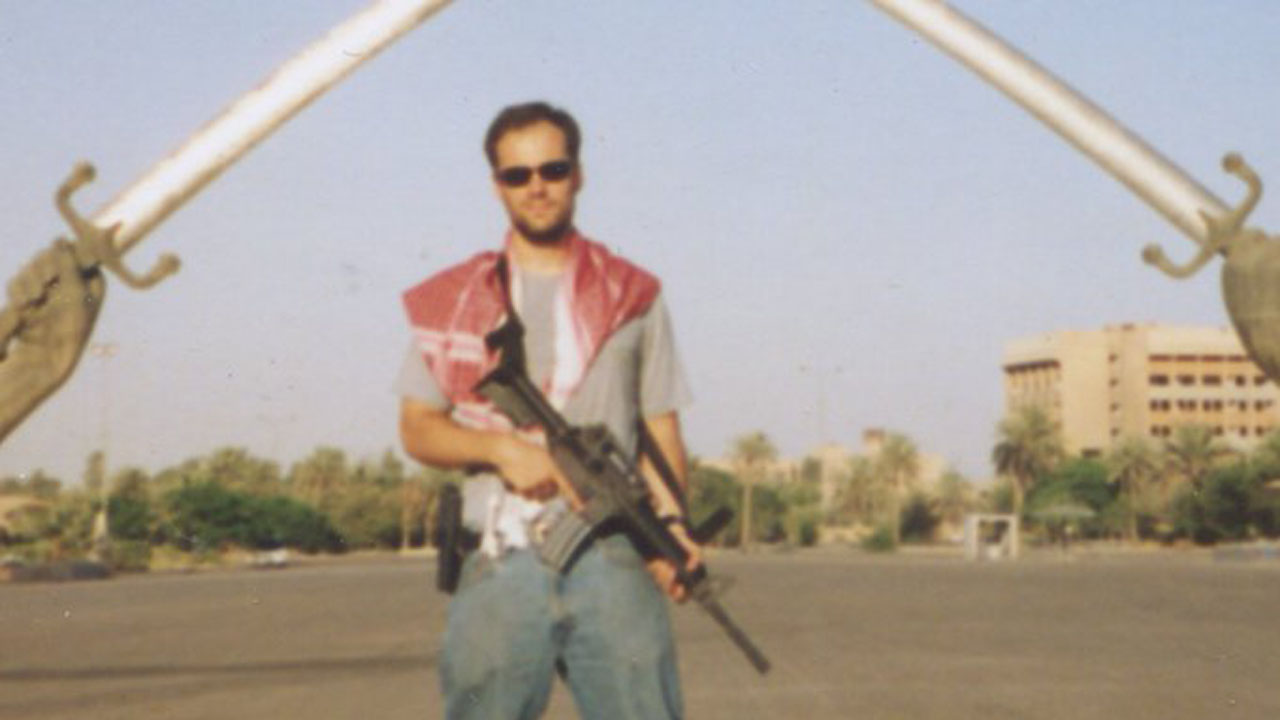
Nrama: Can you even talk about what you did in the CIA? How many years were you in the CIA?
King: It was about seven years – it depends on how you count, with security clearances and the year off after. I round up to about seven.
I think of it as "how I spent my 20s." I was really young to be in the service.
What can I say about it?
It was the greatest honor of my life. I very much enjoyed the job.
I was an operations officer and a counter-terrorism operations officer. It was sort of my job to recruit people to penetrate terrorist networks and to design operations that would stop terrorism.
I worked in Iraq and in the Pakistan-Afghanistan area of war. And all over the world.
And I had to lie to everyone I knew and loved about who I was.
Nrama: What was the lie? What was the cover?
King: Oh, I can't say. I can't tell you.
Nrama: Oh!
King: Isn't that weird?
Nrama: OK, before we go any further, thank you. Thank you for your service.
King: Well…
Nrama: I'm not just saying that. Thank you very much.
King: I always say this, Vaneta. I went to Iraq; I had air conditioning. So…
There were a lot of guys that had a harder time than I did.
Nrama: Still…thank you very much. But you said you sat across from your future wife at the Department of Justice. Were you married by the time you made this decision to go into the CIA? Not to get too personal…
King: No, no, good question.
Nrama: That sounds like a relationship ender.
King: It was a tough decision. My wife's a tough lady. I don't think anyone's ever loved anyone as much as I've loved my wife. And we've been through some shit together.
I told her this was what I wanted to do. I was like, either this or law school.
And she was like, OK, I guess we'll try it.
She was amazingly supportive. I guess that's the cliche way to put it.
But I went into training. And between training and Iraq, I had two or three weeks off, and I proposed during those weeks. And I went off to Iraq and we were engaged.
Nrama: Absolutely the most romantic moment in one of my interviews ever. Did she end up getting her law degree?
King: Yeah! She got a point better than me on the LSAT. We sat next to each other. She's been rubbing that in my face for 17 years. And she went to law school while I was going overseas and stuff. And she's a lawyer to this day. She works in telecommunications law here in D.C.
Nrama: OK, I wouldn't normally delve into your marriage, Tom, but it's such an interesting story - that you went off to the CIA and she was there for you.
King: I'll talk about my wife forever. I'll dedicate everything I have - from my first book to my Eisners, Harvey - everything for her. The world stops and starts with her, man. I couldn't work without her.
Nrama: While all this was going on, did you think you would write again?
King: Honestly, I didn't know. I kind of thought it was impossible to be a writer. I thought it was kind of dream and no one actually achieves it.
Even in college, I never took a creative writing class. I was a philosophy and history major. I just thought - like, again, it was like playing the lottery.
I felt like it wasn't about talent; it was about luck. And I never trusted my own luck. I trusted my talent. I'm arrogant about my talent, but I'm never arrogant about my luck.
Nrama: But eventually that changed?
King: Well, yeah, but it took a while.
Vaneta has been a freelance writer for Newsarama for over 17 years, covering Marvel and DC, and everything in between. She also works in marketing.


